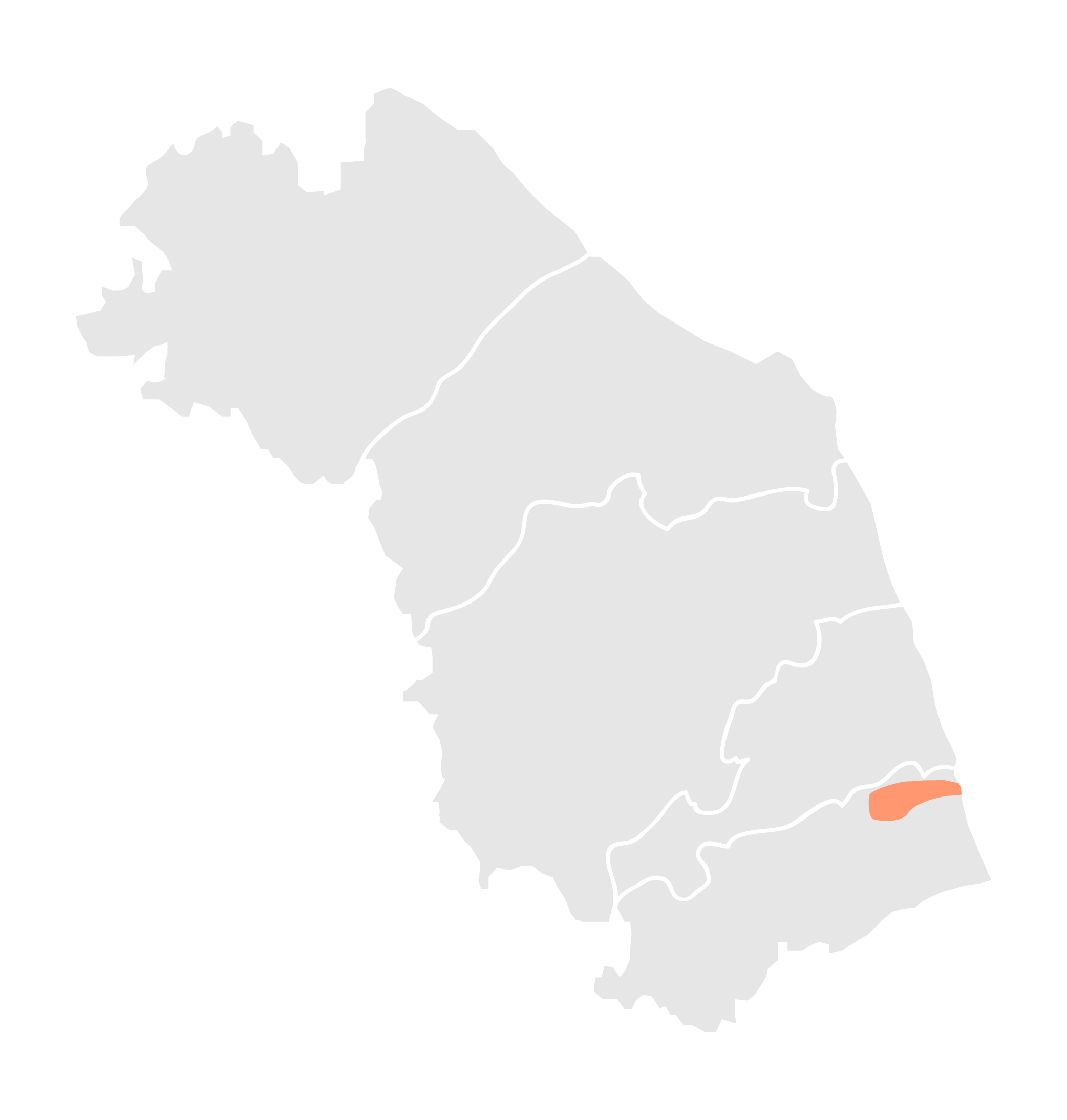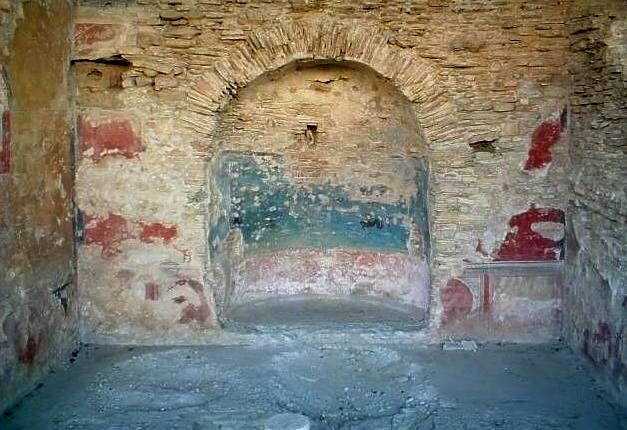
The archaeological site of the Villa with Nymphaeum is located along state road 16 in the town of Cupra Marittima. The discovery of the archaeological site dates back to the '70s, when several wall partitions and graves dating to Roman times emerged during construction works. The archaeological excavations, which were carried out in various phases until 2000, have highlighted the existence of two nuclei. In the north there is a large nymphaeum made up of a rectangular aptic hall which was likely to have originally had a vaulted roof. The Nymphaeum, whose first stage can probably be dated between the late Republican and the early Imperial Age, was originally inserted into the cliff to its rear, to re-create the appearance of a cave. Around the 2nd century, the hall was subjected to structural changes which also involved the restoration of the beautiful wall decoration, still well preserved today. In late Antiquity it fell into disuse and served as a private cemetery. On the south side, however, we can find the remains of a large villa. The structure, built in the Imperial Age, was characterized in its first phase by having some living quarters and other productive quarters. To the latter belong the torcularium area and the liquid collection tanks. The production area itself was transformed around the 4th century when the villa was equipped with a thermal bath system. The thermal baths directly above the production area were characterized by the presence of a beautiful mosaic, of which a large portion is still visible.
We have found no place to eat in the vicinity
We have found no place to sleep in the vicinity
Da Pesaro a San Benedetto del Tronto, lungo la costa Adriatica, alla scoperta dei principali porti e approdi frequentati dall’età del bronzo a oggi. Alla foce di fiumi e torrenti, entro piccole baie, promontori e grandi insenature, si svilupparono nell’antichità porti, porti canale, empori o semplici approdi. Questi scali furono il fulcro di una fitta rete di commerci marittimi che hanno dato vita a un intenso dialogo tra oriente e occidente, testimoniato dai ritrovamenti di reperti provenienti da tutto il bacino del Mediterraneo.
Narra la legenda che l’antico popolo dei Piceni arrivò dalla Sabina (regione montuosa tra Lazio, Umbria e Abruzzo) e si stabilì nel territorio ascolano seguendo il volo di un picchio, uccello sacro a Marte. Qui fondarono la loro capitale, l’odierna Ascoli Piceno, e occuparono tutto il territorio delle vallate del Tronto e del Tesino e, sulla costa, fondarono un grande santuario, dedicato alla dea picena Cupra. Questo itinerario vi condurrà in alcuni dei borghi più belli d’Italia, la cui storia affonda le radici negli antichi villaggi piceni.

|
Address | Adriatica Nord Cupra Marittima |

|
Phone Number | (+39) 0735778622 (+39) 0735776731 |

|
Opening Time | Solo su prenotazione |

|
Visit Time | 30 min |

|
Entrance Fee | Gratuito |

|
Reservation Required | si |

|
Viabilities | Salaria Picena |

|
Bookshop | no |

|
Free Guided Tour | no |

|
Guided Tour | yes |

|
Parking | yes |

|
Disabled Accessibility | no |

|
Audioguide | no |

|
Didactic Rooms | no |

|
Conference room | no |

|
English language | yes |

|
Public Transport | no |

|
Family Services | no |


